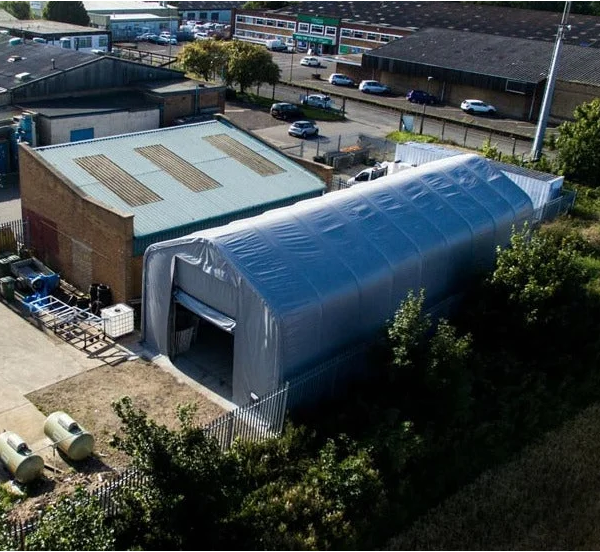
Construction project management is a dynamic and exciting field with opportunities for growth and success. Whether you’re looking to start your own construction business or climb the corporate ladder in an established company, having a solid understanding of construction project management is critical.
One essential aspect of managing any construction project is accurately estimating costs and materials needed for the job- also known as “construction takeoff services“. This can be a challenging task, but thankfully, advanced software programs and services are now available to help streamline the process.
Here, I will delve into elevating your skills as a construction project manager and leading you to more tremendous career success.
Steps to Get Into Construction Project Management
Getting into construction project management typically involves a combination of education, relevant experience, and acquiring specific skills. Here are steps you can take to pursue a career in construction project management:
Education:
Obtain a bachelor’s degree in construction management, civil engineering, or related fields. Some employers may also accept degrees in architecture, business administration, or management, especially if coupled with relevant experience.
Gain Experience:
Start by gaining experience in the construction industry. Entry-level positions such as construction assistant, project coordinator, or field engineer can provide valuable exposure to construction processes and project management.
Acquire Skills:
Develop skills relevant to construction project management, including:
- Project scheduling and planning using software like Microsoft Project or Primavera.
- Budgeting and cost management.
- Risk assessment and management.
- Contract negotiation and management.
- Communication and interpersonal skills for clients, contractors, and team members.
- Knowledge of building codes, regulations, and construction methods.
Certifications:
Consider obtaining certifications relevant to construction project management, such as:
- Project Management Professional (PMP) certification from the Project Management Institute (PMI).
- Certified Construction Manager (CCM) certification from the Construction Management Association of America (CMAA).
- LEED Accreditation for sustainable construction projects.
- OSHA 30-Hour Construction Safety Certification.
Networking:
Network with professionals in the construction industry, attend industry events and join relevant associations or groups. Building connections can provide opportunities for mentorship, job referrals, and industry insights.
Apply for Positions:
Search for entry-level project management positions in construction companies, general contractors, real estate development, or construction consulting firms. Tailor your resume and cover letter to highlight your relevant skills and experiences.
Internships or Co-op Programs:
Consider participating in internships or cooperative education (co-op) programs during your studies to gain hands-on experience and make connections in the industry.
Continuing Education:
Stay updated on industry trends, best practices, and emerging technologies through continuing education, workshops, seminars, and conferences.
Build a Portfolio:
As you gain experience, build a portfolio showcasing your successful projects, highlighting your role in project management, problem-solving skills, and achievements.
Seek Advancement:
As you gain experience and expertise, seek opportunities for advancement within your organisation or consider transitioning to more extensive projects or higher-level positions within the construction industry.
By following these steps and continuously improving your skills and knowledge, you can work towards a successful career in construction project management.
Challenges and Considerations of Getting Into Construction Project Management
Getting into construction project management can be rewarding but comes with challenges and considerations. Here are some to keep in mind:
Education and Experience Requirements:
Many employers prefer candidates with a bachelor’s degree in construction management, engineering, or a related field, along with relevant work experience. Meeting these requirements can take time and effort.
Competitive Industry:
The construction industry can be highly competitive, with many qualified individuals vying for project management positions. Standing out from the competition may require education, experience, and networking.
Technical Knowledge:
Construction project managers must understand construction processes, building codes, regulations, and industry standards. Keeping up with evolving technologies and best practices is essential.
Project Complexity and Risk Management:
Construction projects can be complex and involve various risks, including budget overruns, delays, safety hazards, and unforeseen challenges. Project managers must be skilled in risk assessment, mitigation, and contingency planning.
Time Management and Scheduling:
Meeting project deadlines is critical in construction project management. Project managers must develop and maintain detailed schedules, coordinate activities, and resolve conflicts to ensure timely completion of projects.
Stressful Work Environment:
Construction project management can be demanding and stressful, especially when facing tight deadlines, budget constraints, and unexpected challenges. It’s essential to handle pressure and remain calm under stressful conditions.
Safety Regulations and Compliance:
Ensuring compliance with safety regulations and standards is paramount in construction project management. Project managers must prioritise safety, implement safety protocols, and promptly address safety issues to protect workers and mitigate risks.
Continuous Learning and Adaptability:
The construction industry constantly evolves, with new technologies, regulations, and trends emerging regularly. Successful project managers must be committed to continuous learning, staying updated on industry developments, and adapting to changing circumstances.
Despite these challenges, a career in construction project management can be gratifying, offering opportunities for professional growth, leadership development, and the satisfaction of seeing projects come to fruition.
Conclusion
Becoming a construction project manager is a challenging feat. It requires technical knowledge, excellent communication and leadership skills, and the ability to handle high-pressure situations. However, with the proper education, training, and determination, it is a rewarding and fulfilling career that offers endless opportunities for growth and development. The key is to stay updated on industry trends and advancements, constantly seek opportunities to learn and improve yourself, and never be afraid to take on new challenges. Remember, success in this field is not determined solely by your experience or qualifications but by your passion and dedication towards creating safe, efficient, and sustainable buildings for future generations. So go out there confidently and embark on your journey towards becoming a successful construction project manager!











